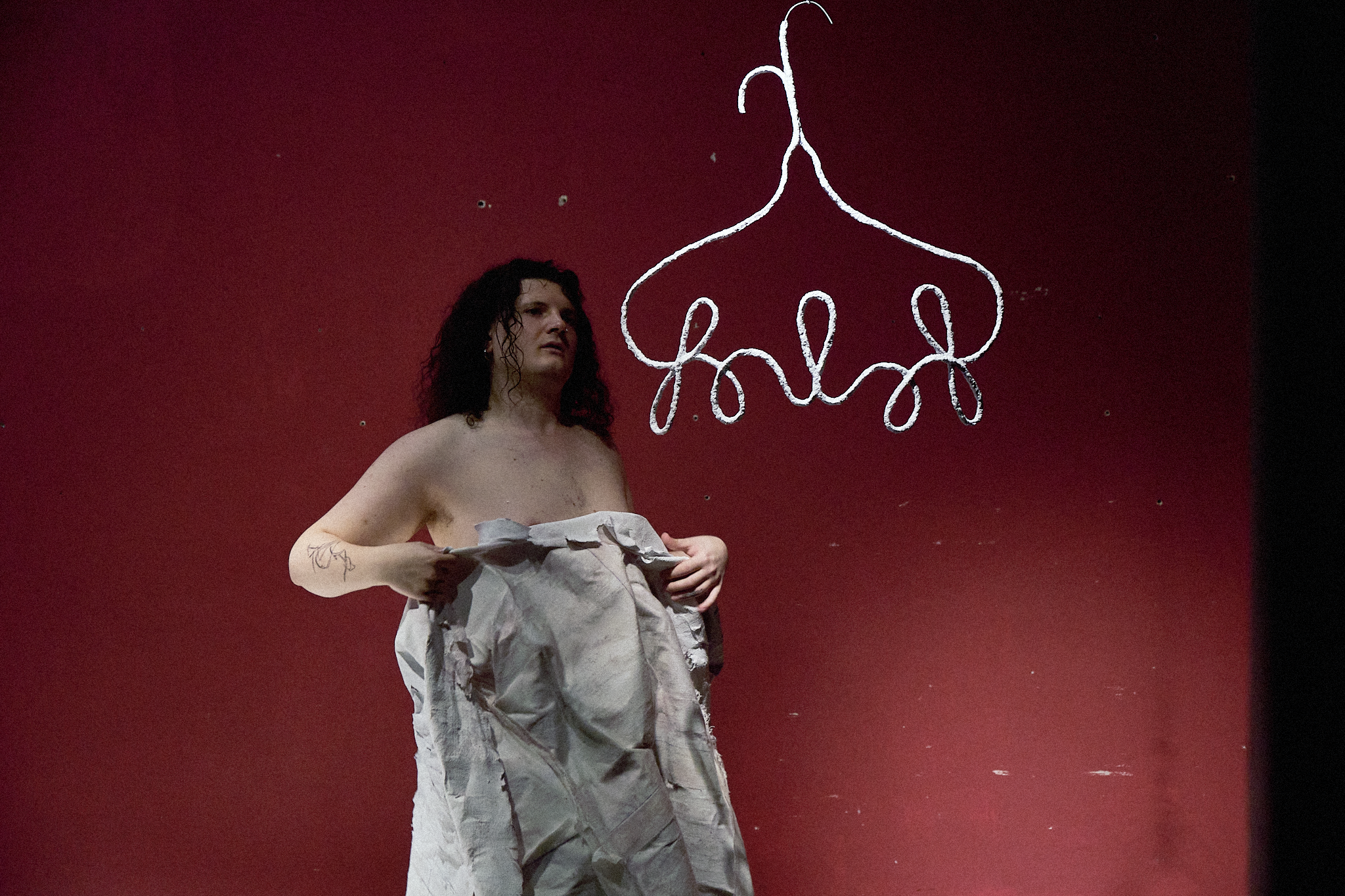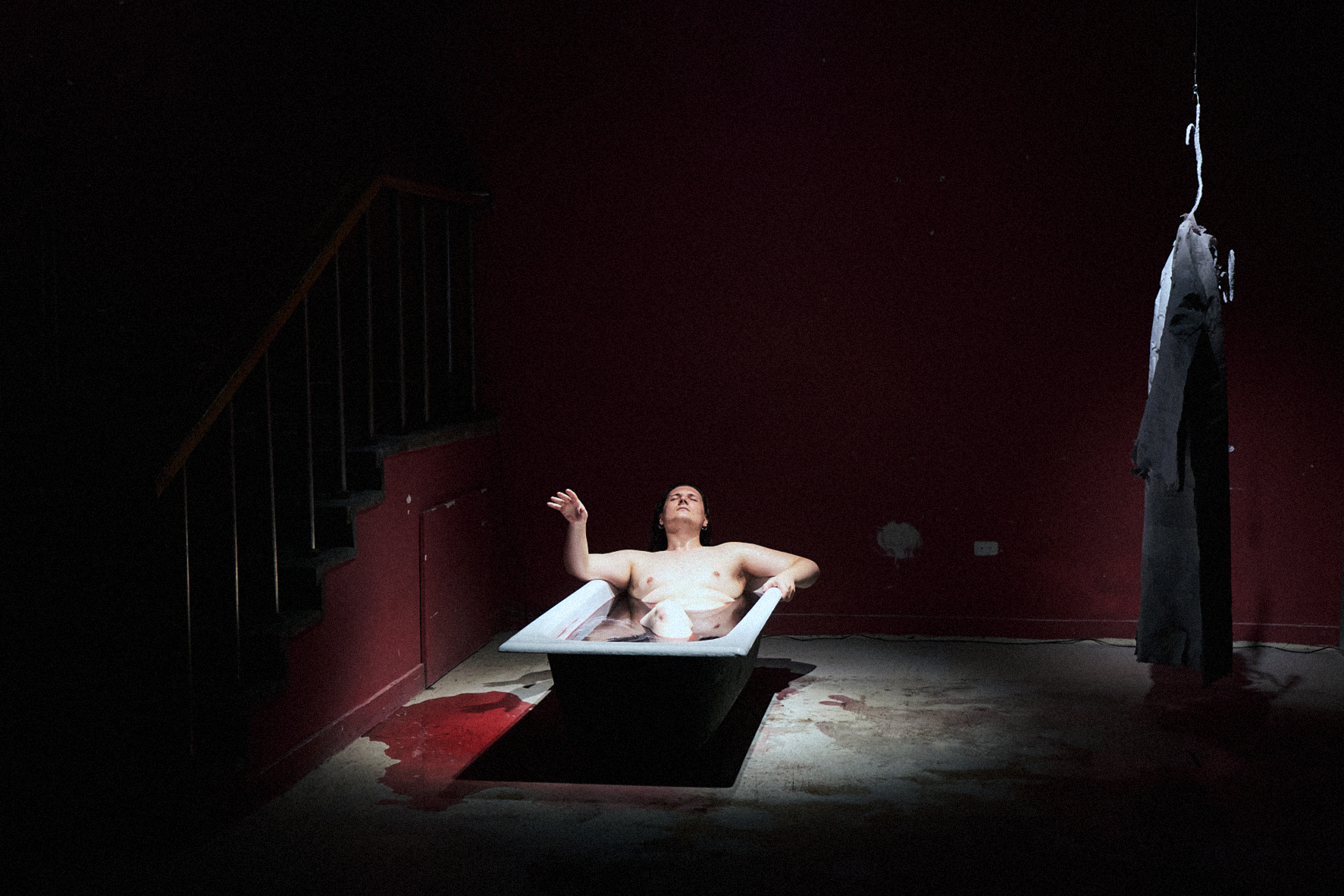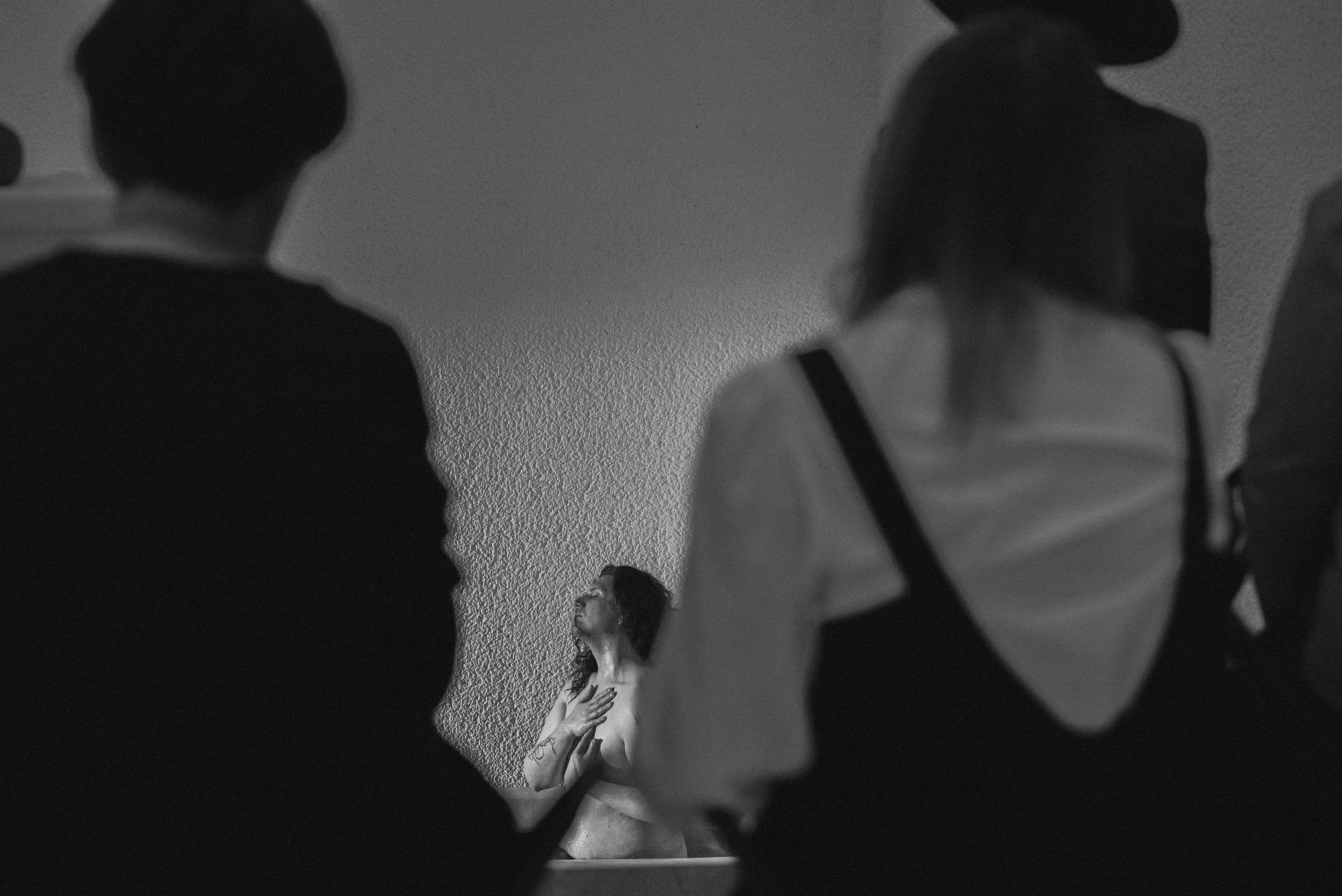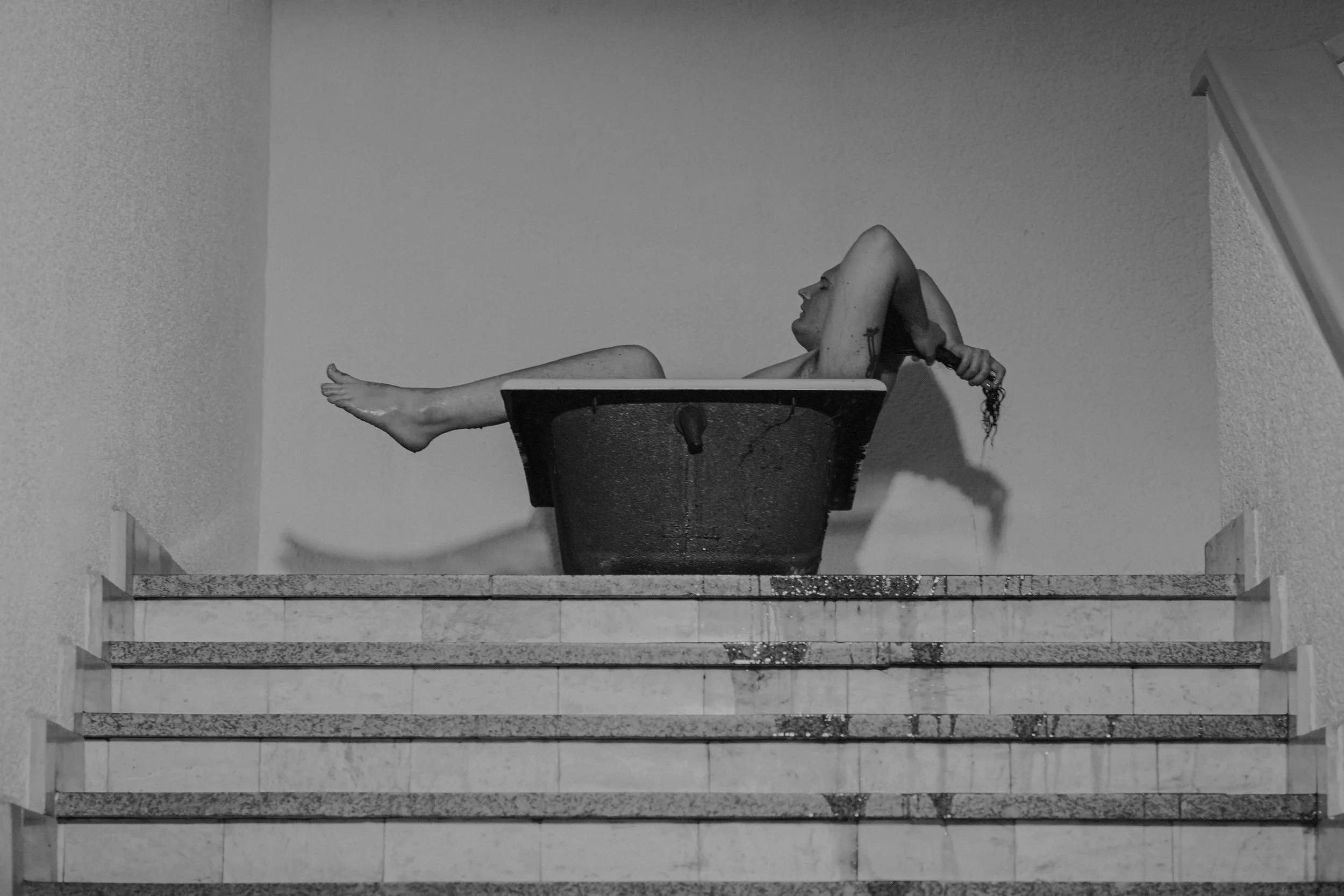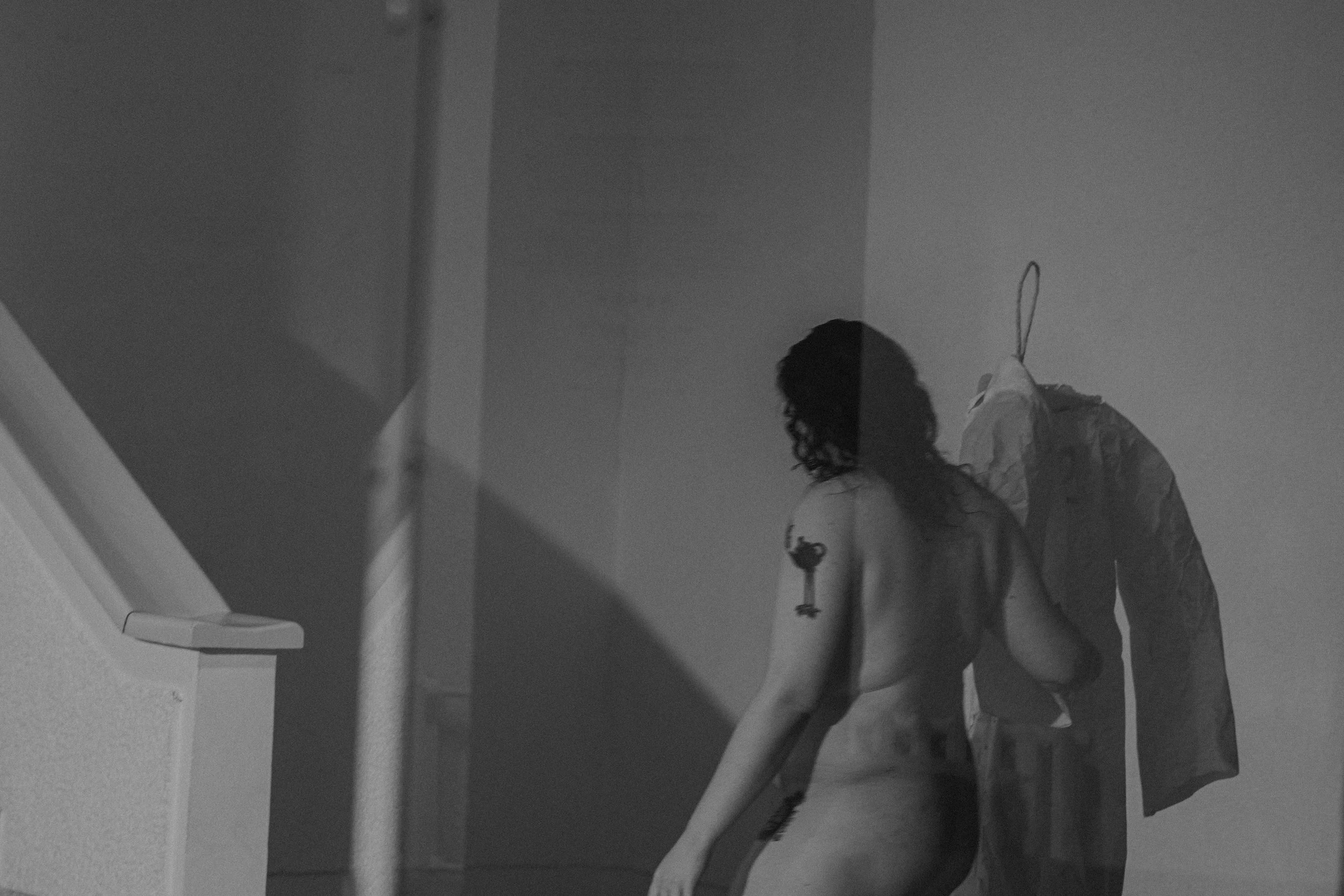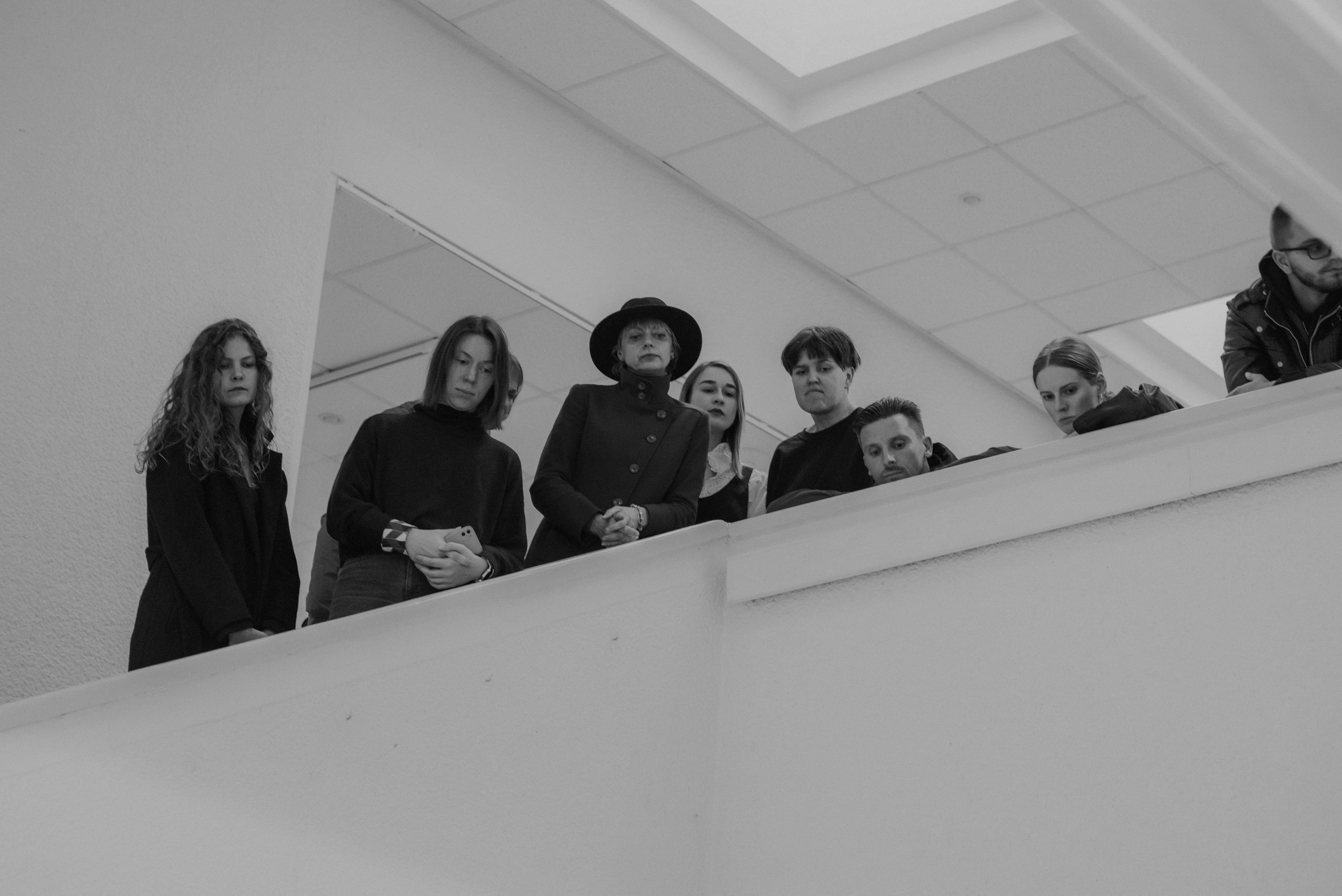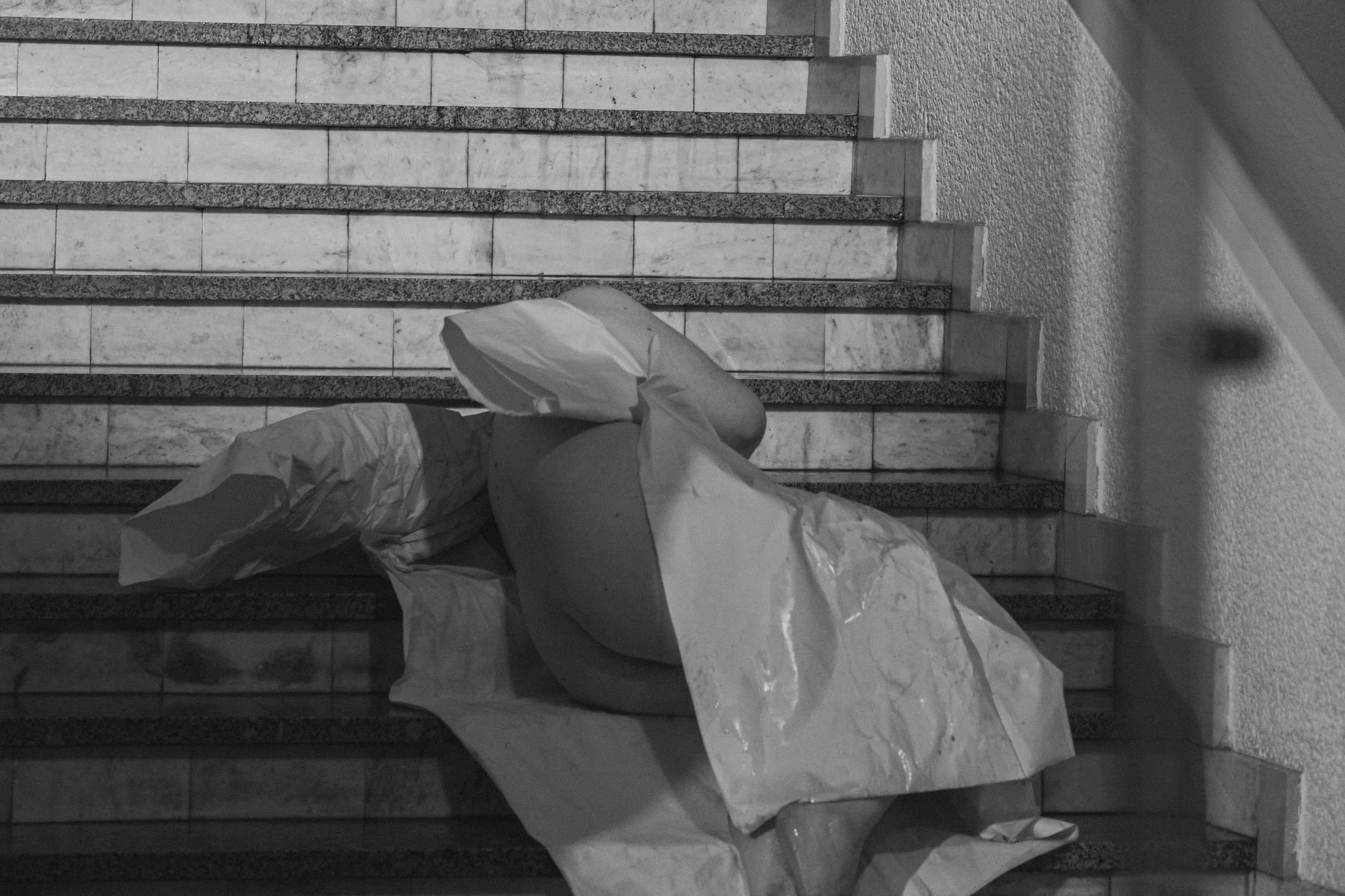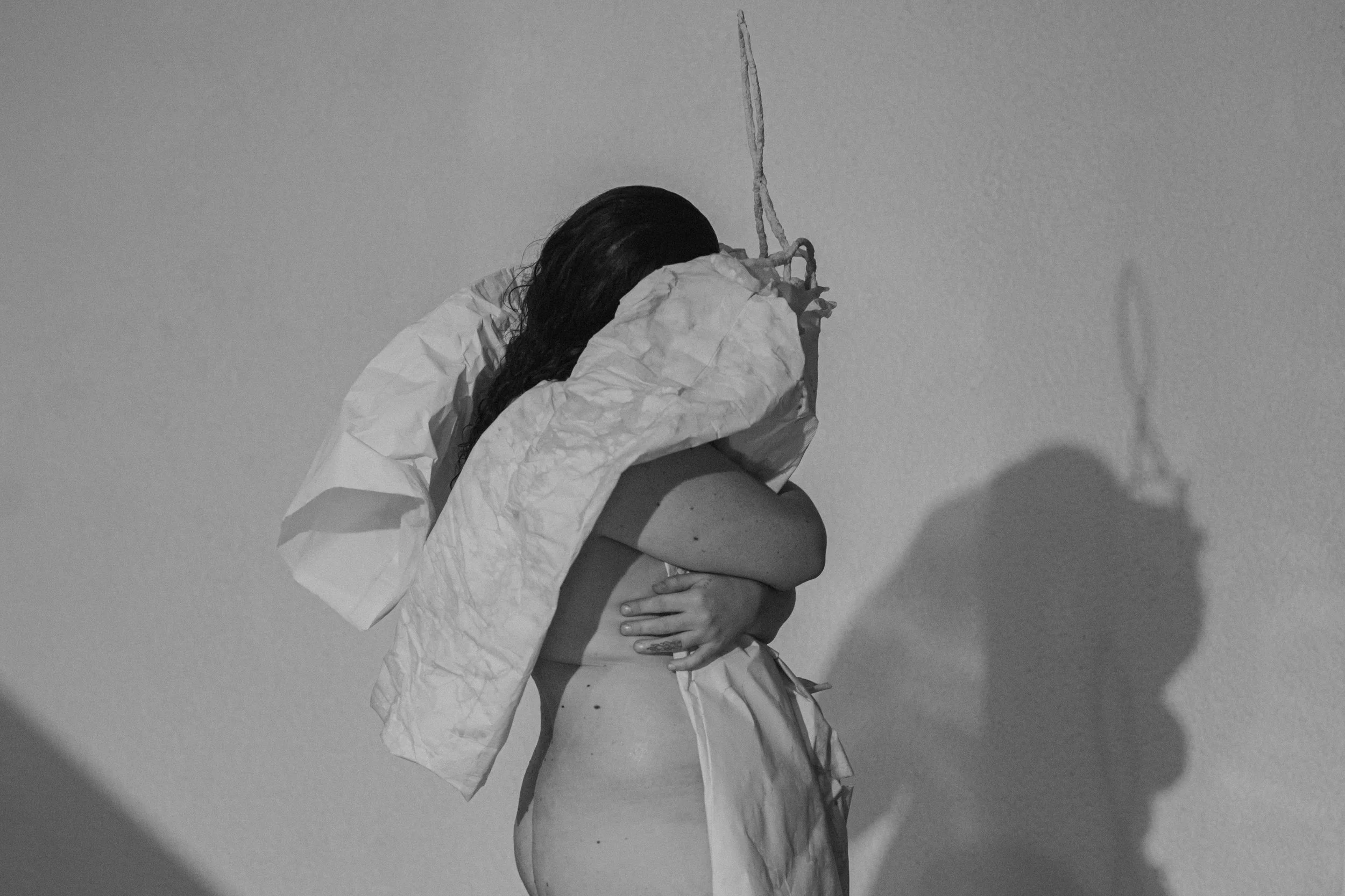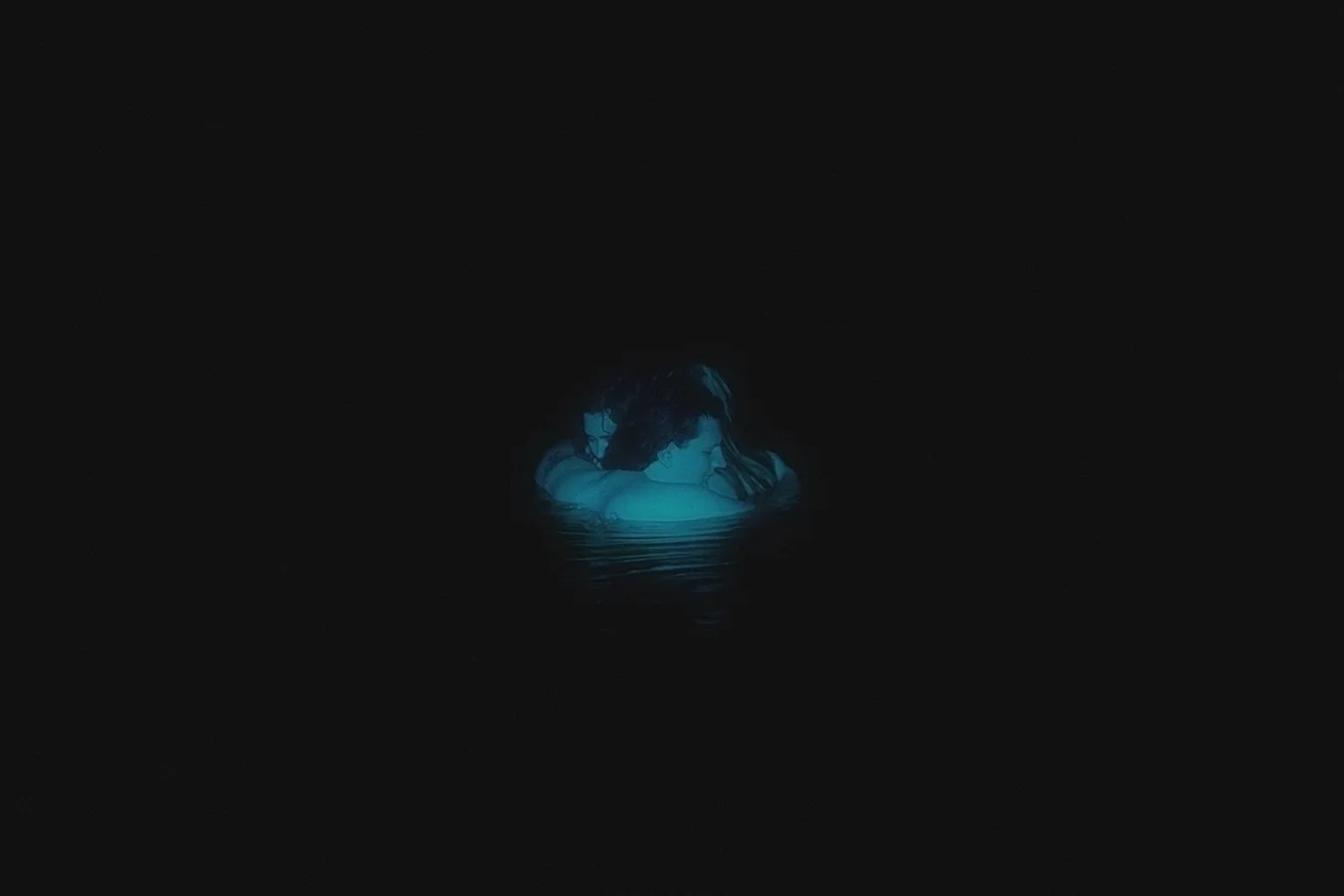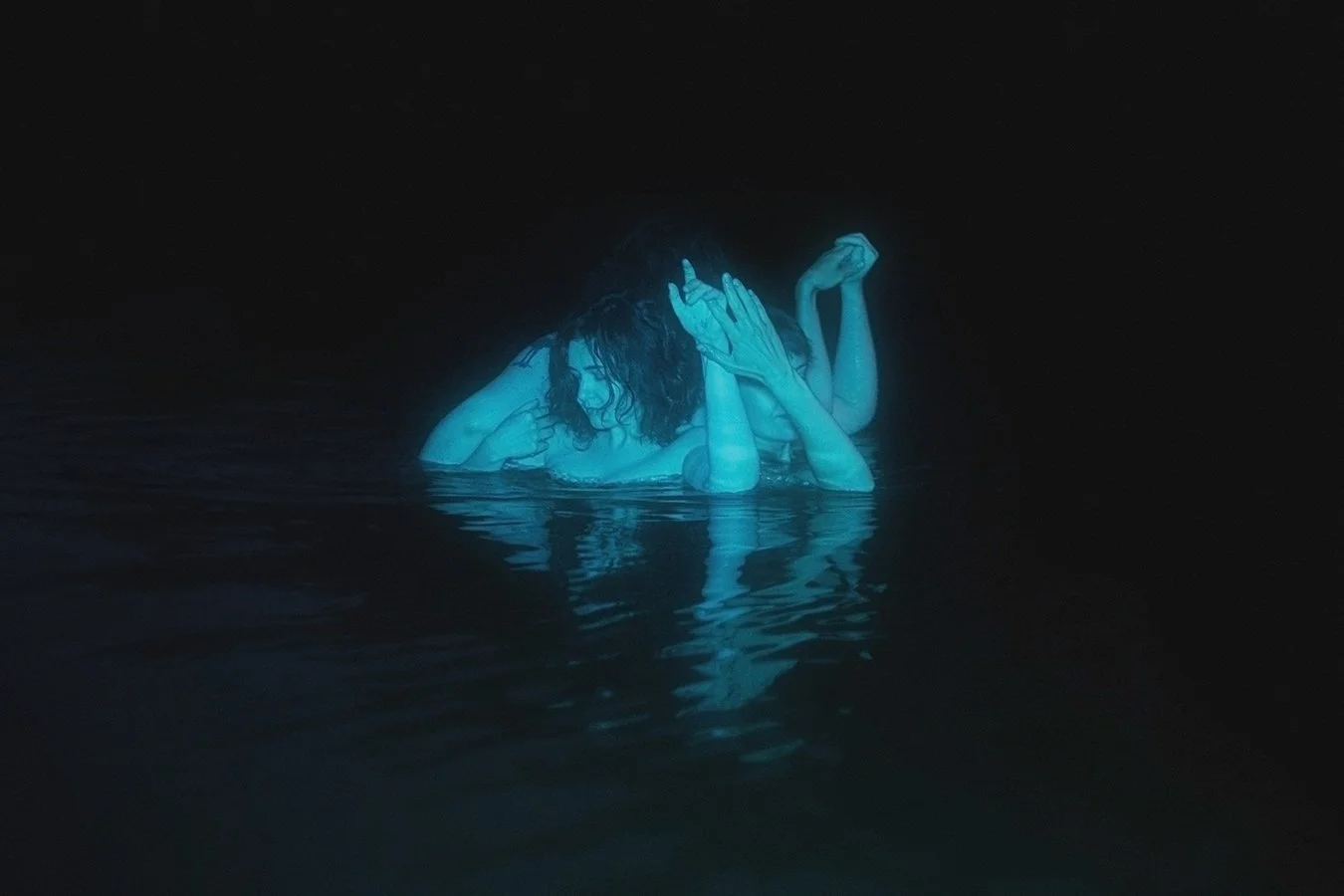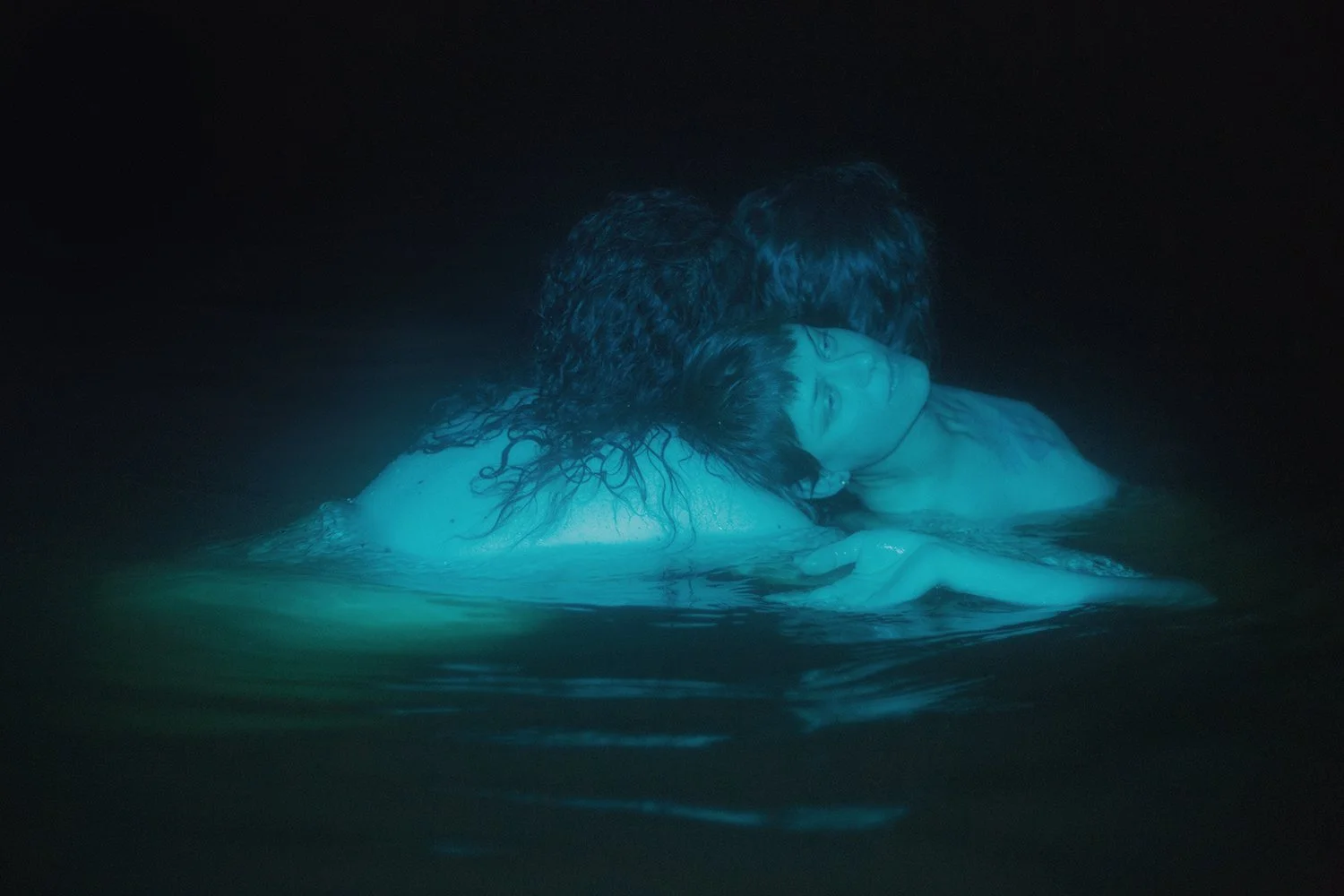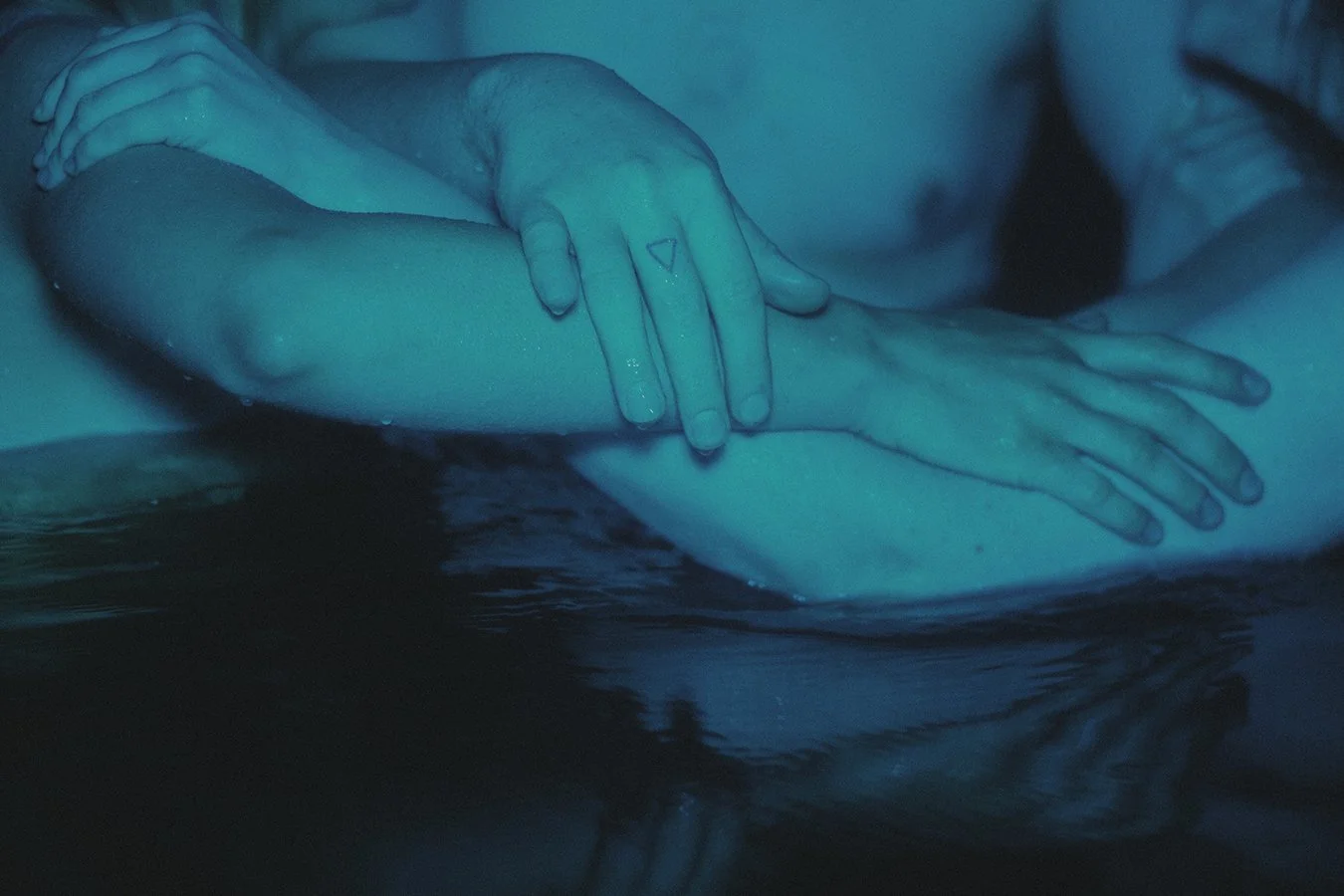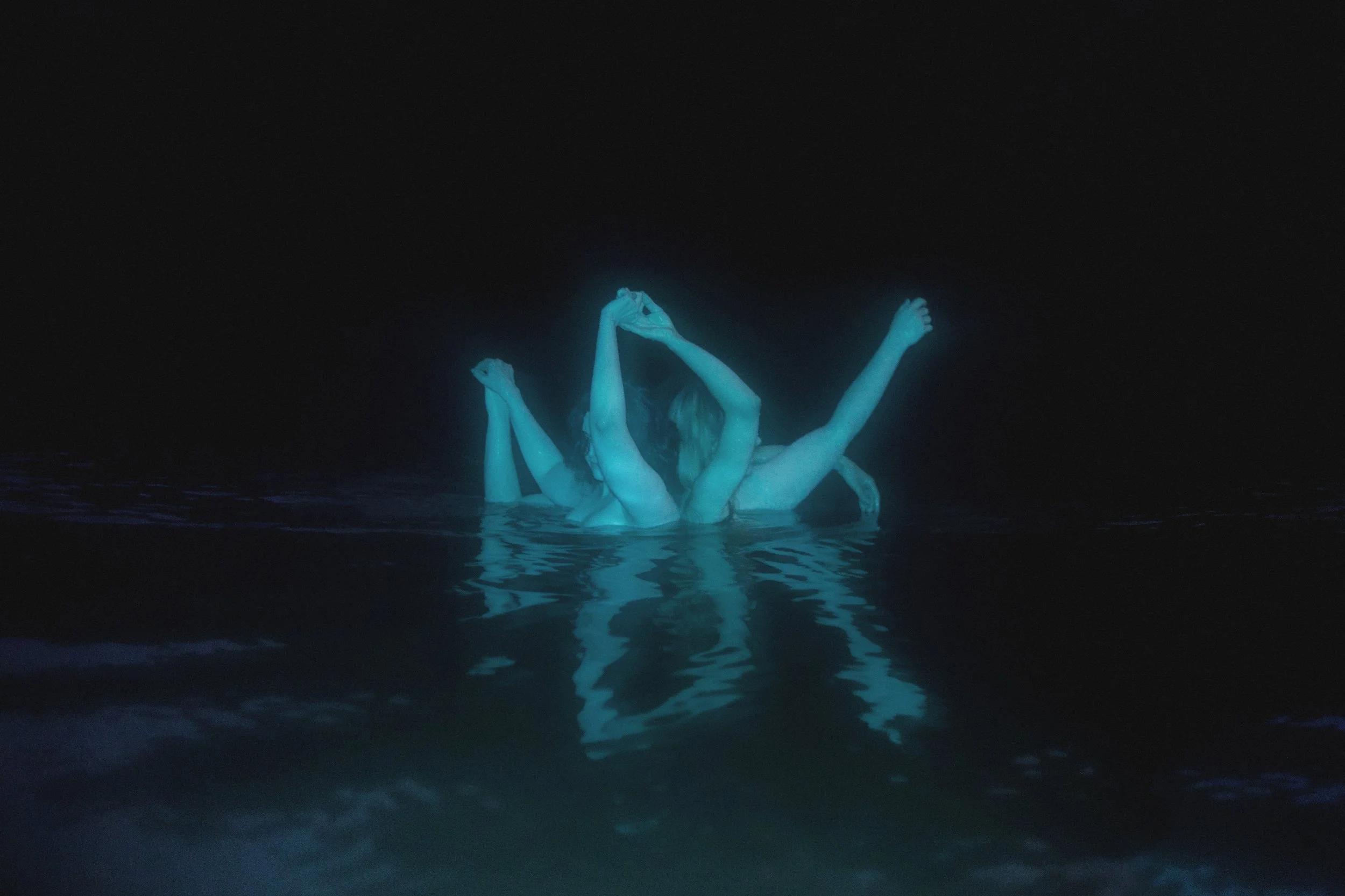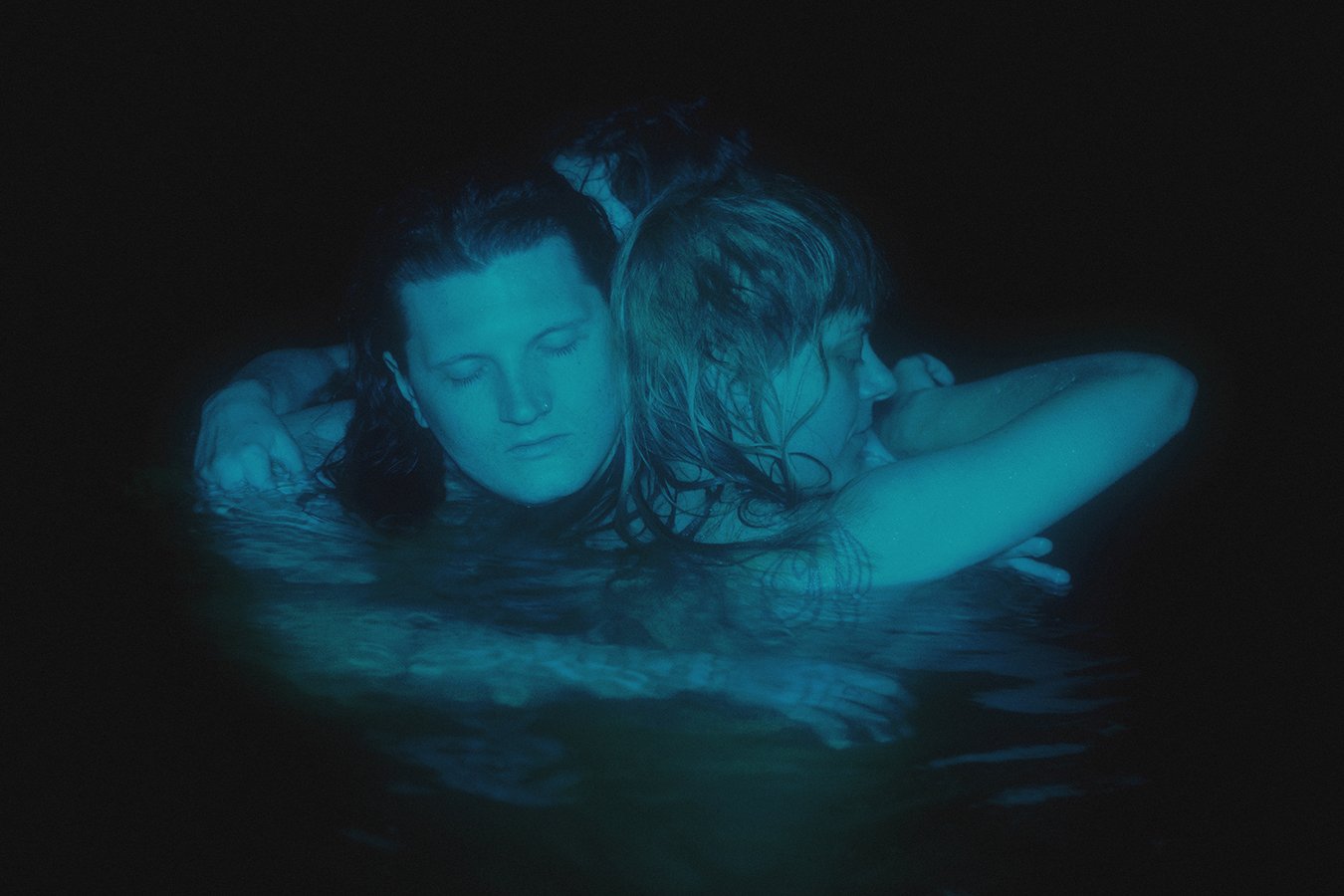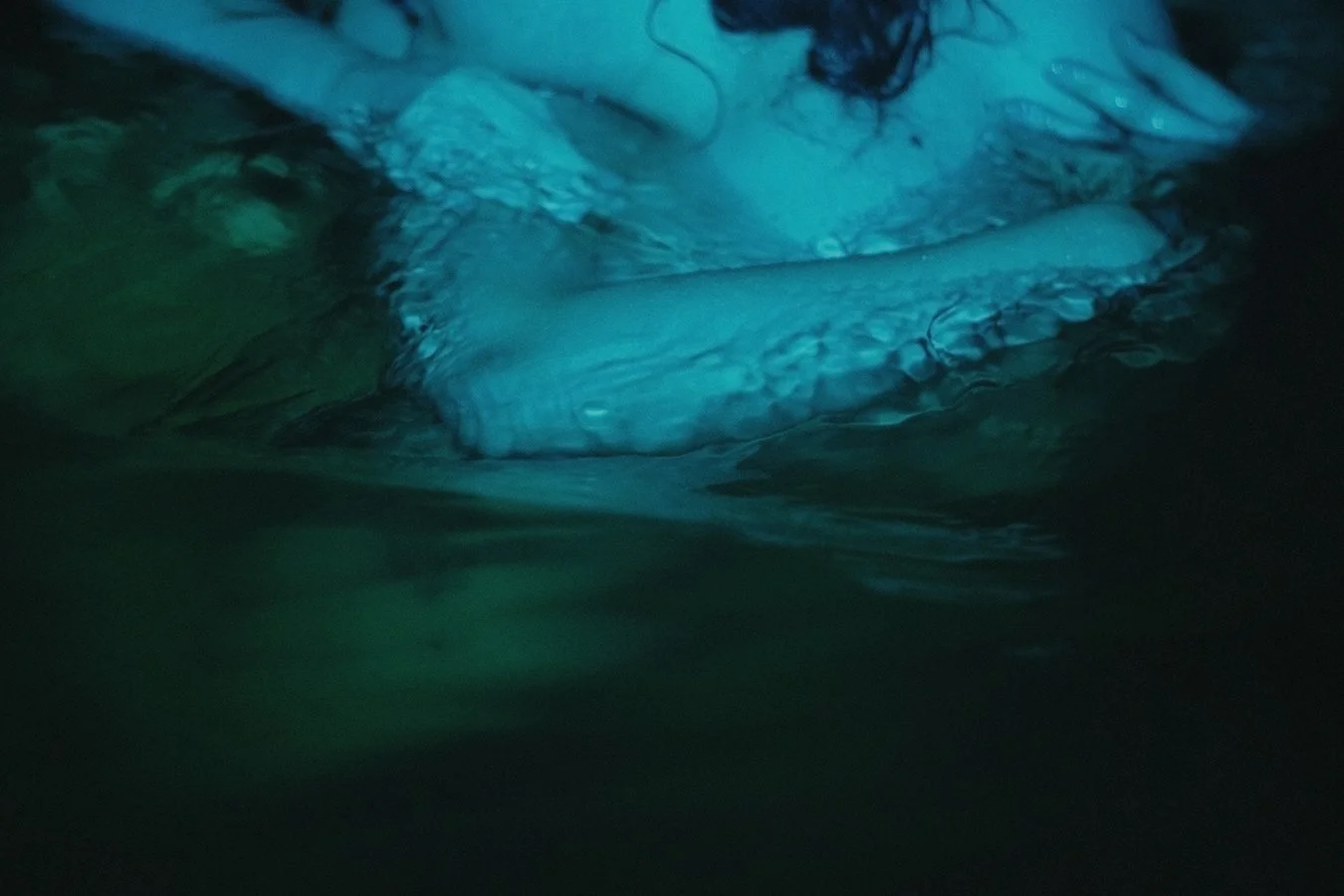In the Waters of River Möbius
2018 Rich Mix, London (‘POEM BRUT #4’ curated by SJ Fowler)
2023 Radvilų Rūmų Dailės Muziejus (‘out of touch’ exhibition, curated by Karolina Zakarauskaitė and Karolina Latvytė Bibiano / RYŠIAI Festival)
2023 Klaipėdos Kultūrų Komunikacijų Centras (‘The Parametric Storage’ exhibition, curated by Milda Dainovskytė)
In the Waters of River Möbius is a performance whose remnants become an installation. The performance ends. The wine goes mouldy. The paper dries, wrinkles, and curls on itself at its tattered edges. Where does the performance end and the document begin?
The topic of the performance is the inheritance of children of alcoholics, grappling with the legacy and role they were cast in within the dysfunctional family system, situated within the Lithuanian context and connecting personal and familial turmoil with the changeover of political regimes. The performance’s core is sonic, being made up of several layers. First, there is the sound of the river streaming throughout the background of the performance’s entire one-hour run. On top of this play extracts of a 4-hour conversation with my mother about her addiction, incidents from my childhood and before I left the home, our family, and the unresolved tensions between us. Breaking up the conversation are musical interludes of original music (played on piano and harp) and performances of 5 original songs in 3-part traditional Lithuanian 'sutartinė' form that retell my and others’ memories of bearing witness to the effects of addiction and being part of the cycle of dependence in our families.
Taking the rhythm of this ceaseless cycle, the performance centres the repetitive action of bathing in ‘wine’ (a mixture of grape concentrate and beetroot juice) yet being unable to get clean, continuously getting out and putting on a pristine white robe that becomes uncontrollably dirtied in this increasingly frantic process, with the performer grappling with the physical traces of their psychological condition, in a nod to Lady Macbeth. Based on a traumatophilic approach, the performance is an invitation to bathe within the heaviness of our personal and shared experiences, resisting the urge to soothe, resolve or rationalise, all the while transforming these experiences into something beautiful, contemplative, and in the end, understanding acceptance to be the only path forward. The audience's gaze is invited as a form of shame-absolving acceptance, while simultaneously reflected in a challenge to its policing potential.
Photos by Francesco Rufini, Agnietė Skirmantė and Laima Stasiulionytė.





